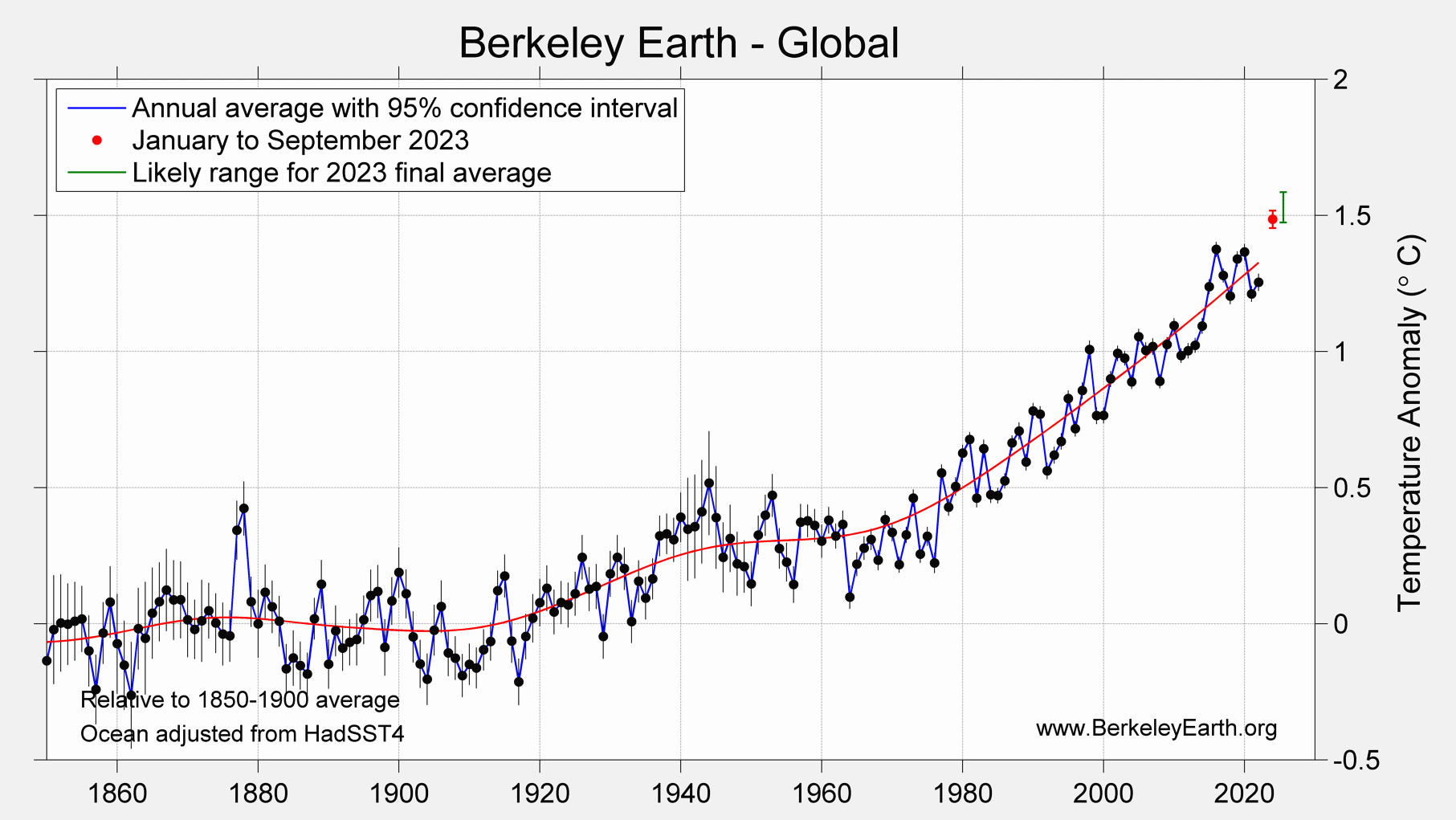Event JSON
{
"id": "37defb1258831ca99728726edcf9597b727671e3c37e41025ccff92ef92520f7",
"pubkey": "dd34380a8986339a465dcfb9fd8f2d2b61ad3957178adeca2e9084e89465a221",
"created_at": 1697064211,
"kind": 1,
"tags": [
[
"e",
"c13dd638944e5779fee9cee3ede94b4031966804f559e85f1ee6994a65867eb0",
"wss://relay.mostr.pub",
"reply"
],
[
"t",
"elnino"
],
[
"t",
"weather"
],
[
"t",
"temperature"
],
[
"t",
"Climate"
],
[
"t",
"globalwarming"
],
[
"t",
"climatechange"
],
[
"proxy",
"https://fediscience.org/users/RARohde/statuses/111218800189551117",
"activitypub"
]
],
"content": "Given the warmth of recent months, and the current El Niño, 2023 is now virtually certain (\u003e99% likelihood) to become the warmest year ever directly measured.\n\nIn addition, 2023 is now very likely (90% chance) to finish at least 1.5 °C (2.7 °F) above our 1850-1900 baseline.\n\n#ClimateChange #GlobalWarming #Climate #Temperature #Weather #ElNino \n\n10/\n\nhttps://fediscience.org/system/media_attachments/files/111/218/797/498/302/012/original/c4750efef4b34544.png",
"sig": "fcdb7f5261d96fdaf6bf5bce5dadd8cc0ef3729c65cb2cd5a4800951baa974e4a152f6e3da8d4aefceee031ccba61e46f131a026e0ca165f94588def31a1ddca"
}

